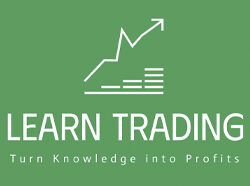In order to satisfy the needs of both novice and seasoned traders, trading platforms in the UK have undergone substantial development, providing a wide range of tools and information. The most well-known trading platforms, their salient characteristics, and practical applications for traders will all be covered in this tutorial. The UK’s regulatory landscape, especially the function of the Financial Conduct Authority (FCA) and its effects on trading, will also be discussed in this article. Regardless of your trading interests—stock, spread, CFD, or otherwise—this guide will offer insightful information to assist you in selecting the ideal platform.
1. The The financial services sector Conduct Authority’s (FCA) role in regulation
The Financial Conduct Authority’s (FCA) oversight of a trading platform is among the most crucial factors to take into account when choosing one in the UK. In order to ensure that brokers and platforms function fairly, openly, and securely, the FCA is in charge of monitoring and controlling financial services in the UK. Because the FCA imposes stringent requirements to protect clients’ cash, traders may be sure that any platform that is licensed by the FCA offers a higher level of security.
2. Choosing the Right Trading Platform
The UK is home to many top trading platforms that offer a range of features and benefits. These platforms are designed to accommodate different types of traders, from beginners to professionals. Whether you’re a day trader looking to execute quick trades or an experienced trader who needs access to advanced charting tools and market analysis, there is a platform that can meet your needs.
A key factor when selecting a platform is its range of assets. Many top UK trading platforms offer a wide variety of assets, including stocks, forex, commodities, indices, and cryptocurrencies. This allows traders to diversify their portfolios and take advantage of different market opportunities. If you’re particularly interested in stock trading, look for a platform that offers a robust stock trading experience with access to real-time data, market analysis, and competitive spreads.
3. Types of Trading Accounts
When you sign up with a UK trading platform, you will typically have access to different types of trading accounts. These accounts vary depending on your needs and the type of assets you wish to trade.
Share Dealing Account: This account allows you to buy and sell shares in UK-listed companies. You can trade stocks, track your portfolio’s performance, and access real-time market data to inform your trading decisions. Most platforms in the UK that offer share trading will also provide you with tools to conduct technical analysis and evaluate market trends.
Trading Account: A general trading account is used for a variety of assets, such as stocks, forex, and commodities. This type of account provides you with the flexibility to trade across different markets using various trading strategies.
Demo Account: For beginners, a demo account can be invaluable. It allows you to practice trading without risking real money. You can simulate trades, learn how the platform works, and build your trading skills before committing to a live account.
4. Key Features of UK Trading Platforms
Top trading platforms in the UK offer a wide range of features designed to enhance the trading experience. These features include:
Real-Time Market Data: Access to real-time data is essential for traders looking to make informed decisions. Top platforms provide up-to-the-minute information on stock prices, forex rates, and other market conditions.
Market Analysis Tools: The best platforms provide comprehensive market analysis tools to help traders assess trends and predict price movements. These tools include charting software, market news feeds, and economic calendars.
Trading Strategies and Technical Analysis: Experienced traders rely on a variety of trading strategies to identify opportunities and manage risks. Platforms that offer advanced technical analysis tools, such as candlestick charts, moving averages, and oscillators, can be invaluable in making data-driven trading decisions.
Spread Betting and CFDs: Many traders use spread betting and CFDs (Contracts for Difference) to speculate on price movements without owning the underlying asset. These platforms allow traders to take positions on stocks, indices, and commodities, using leverage to maximize potential profits.
5. Platform Features for Day Traders
Day trading requires quick execution and real-time market data. Platforms catering to day traders often come with advanced charting tools, fast order execution, and customizable features that allow traders to monitor multiple assets simultaneously. A good day trader platform should also have a user-friendly interface and minimal downtime, ensuring that you can act quickly on any market movements.
When selecting a platform for day trading, it’s important to focus on the following features:
Low Spreads: Tight spreads reduce the cost of trading, allowing you to make profits from small price movements. Look for platforms that offer competitive spreads for the assets you want to trade.
Fast Execution: Speed is crucial for day traders. Choose a platform that can execute trades quickly, especially in volatile markets.
Access to Leverage: Many day traders use leverage to increase their exposure to the markets. Platforms that offer leverage allow you to trade larger positions with a smaller initial investment.
6. Spread Betting and CFDs in the UK
Spread betting and CFDs are popular forms of trading in the UK, allowing traders to speculate on the price movements of a wide range of assets without owning the underlying assets themselves. These products offer high flexibility, as you can trade stocks, indices, commodities, and currencies on margin.
Spread Betting: With spread betting, traders place bets on whether the price of an asset will rise or fall. The spread is the difference between the buy and sell price of the asset, and the trader’s profit or loss is determined by the price movement relative to their position.
CFDs (Contracts for Difference): CFDs allow traders to buy or sell a contract that reflects the price movement of an asset, without owning the asset itself. CFDs offer a way to profit from both rising and falling markets, and like spread betting, they can be traded with leverage.
Both spread betting and CFDs are regulated by the Financial Conduct Authority (FCA), ensuring that traders are protected against fraud and unfair practices. These products can be an excellent choice for experienced traders looking to maximize their profits while managing risks through hedging and other strategies.
7. Stock Trading Platforms: Key Features to Look For
Stock trading platforms in the UK offer several key features that can help traders make better investment decisions:
Real-Time Data: Having access to real-time data is critical when trading stocks. Look for platforms that provide live stock quotes, news, and analysis so you can react quickly to market changes.
Trading Tools: Advanced trading platforms provide a wide range of tools to analyze the market, including technical indicators, charting tools, and order types. These features help you implement your trading strategies effectively.
Low Fees: Trading fees can add up quickly, so it’s important to choose a platform with low or transparent fees. Many platforms charge commission on stock trades, but there are also commission-free platforms available.
Access to International Markets: If you’re interested in trading stocks outside the UK, look for a platform that gives you access to international markets, including the US, Europe, and Asia.
8. Using Market Analysis to Make Better Trading Decisions
Effective market analysis is key to successful trading. Whether you are trading stocks, forex, or spread betting, analyzing market trends and understanding the factors that influence asset prices is essential.
Technical Analysis: This type of analysis involves studying price charts and using indicators to predict future price movements. Common tools used in technical analysis include moving averages, Relative Strength Index (RSI), and Bollinger Bands. For experienced traders, technical analysis is an essential part of their strategy.
Fundamental Analysis: This method involves analyzing economic data, company financials, and other factors that may affect the price of an asset. While technical analysis is focused on price movements, fundamental analysis focuses on the intrinsic value of the asset.
Sentiment Analysis: Market sentiment refers to the overall attitude of traders toward a particular asset. Monitoring news, social media, and other sources can help you gauge sentiment and make informed trading decisions.
9. Trading Strategies for the UK Market
Traders use a variety of strategies to profit from market movements. Some of the most popular strategies include:
Trend Following: This strategy involves identifying a trend and following it. Traders use technical analysis to identify bullish or bearish trends and enter positions accordingly.
Scalping: Scalping is a strategy that focuses on making small profits from frequent trades. Scalpers take advantage of small price movements, often holding positions for just a few minutes or seconds.
Swing Trading: Swing traders aim to profit from short to medium-term price movements. They typically hold positions for a few days or weeks, relying on technical analysis to identify entry and exit points.
10. Sum-up
Choosing the best UK trading platform depends on your individual needs and trading goals. Whether you’re an experienced trader looking for advanced charting tools, a day trader seeking quick execution, or a beginner wanting to learn the ropes with a demo account, there is a platform in the UK that can suit your needs. Always make sure that the platform you choose is regulated by the Financial Conduct Authority (FCA) to ensure a safe and secure trading experience.
With a wide range of assets available, advanced trading tools, and access to global markets, UK trading platforms provide everything you need to succeed in the stock market and beyond. By considering factors such as regulation, account types, and trading strategies, you can make informed decisions and start trading with confidence.



